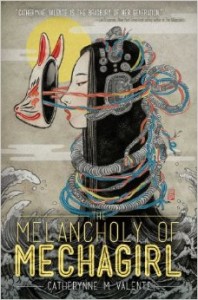In which Daniel ruminates upon his nibbley nabbley thoughts.
To my dear reader,
If you have been keeping up with my blog posts across the past year and a half, you may notice how frequently food is a subject of my writing. They do say that the quickest way to a man’s heart is through his stomach, after all. But food holds a place of special meaning in almost everything I do – I write about food, I compose with food in mind, I compare people to food, and there are few moments in life when I am not eating. am not a heavy eater, mind you, but a grazer. I am always nibbling on a little smackrel of something.
My fixation with food has much to do with my eleventh grade creative writing teacher, the delightful Tarn Wilson. Ever wise and magnanimous in her teaching, Ms. Wilson proposed to me that all humans have two general, basic urges: to love and to eat. Needless to say, there is plentiful literature and art explicitly discussing the first, yet little explicitly dealing with the second.
Yet food is a powerful world-building tool, and because the part of the brain in charge of memory and the part in charge of smell are so near one another, even indirect stimulation of the “smell” part – such as reading descriptions of simmering stew or the bitterness of espresso – can conjure powerful mental pictures. Food therefore became a logically powerful tool in my writing, as it can so easily connect to an audience. Yet it is this year especially in which my fixation with food transformed into something a bit more succulent.
Firstly, I decided at the end of the 2014 spring semester to compose a piece for the 2014 fall semester’s musical theater cabaret, which was to be Halloween themed. Intent on expanding my compositional palate, I wrote scraps of dissonant violin lines and food themed lyrics that I wove together into a piece entitled “Good Enough to Eat: An Opera in Miniature”, which can be found on my SoundCloud here:
https://soundcloud.com/dwolfert/good-enough-to-eat-fall-2014
The self-contained nine minute musical adventure tells the tale of a little girl named Isabella, who lives with her wicked stepfather by the woods. One day, while wandering through the woods, she stumbles upon her fairy godmother, who promises her a world of magic. Upon discovering the wickedness of Isabella’s stepfather, however, the vengeful godmother hunts down the stepfather and gobbles her up, and that is why the opera is called “Good Enough to Eat”.
But although the cabaret occurred in October, my urge to write about monstrous mothers and delectable daughters was not satiated. For my Magic Realism class, my final writing project became one a story entitled “Pepita’s Daughter”. The short tale speaks of Moschata Russel, a young girl with skin as vividly orange as a pumpkin. Impressionable as children are prone to be, Moschata begins to idolize her new babysitter and takes her mother’s advice that “you are what you eat” a shade too far. Take a nibble of the first page:
When Moschata Russet stepped into the Halls of Full Harvest Elementary School, whispers followed like a wind in her wake.
“My mommy said that she ate too many carrots.”
“That’s stupid, that would give you big eyes and hers are normal. My daddy says that her papa must have been a squash or something like that.”
“My mama says she doesn’t have a Papa. Her mama grew her from a seed she found in her pocket one day, and that girl just came from the sprout. Cross my heart, hope to die.”
No student seemed willing to speak to her over the matter directly. Once, however, a small boy in the grade below came to her as she sat alone eating her lunch, asking “Why do you look the way you do?” To this she replied, “For the same reason you look the way you do.”
The boy pondered this for a moment. He nodded and skipped away, back to his friends standing near the playground watching. They hurried away with him, throwing nervous glances back as they walked. Moschata returned to her lunch of wheat bread and toasted slivers of squash.
After that, no children dared ask her why her skin was so perfectly orange, so cramoisy cardinal, so flavescently flammeous. Pumpkin skin on a plump little body; cheeks blushed with decay.
Why cannibalism, then? I suppose that it goes back to what Ms. Tarn Wilson taught me: love and food. Food brings people together. It allows cultural boundaries to be crossed, and creates common ground between people that might not otherwise have any. Food builds bridges and sparks imaginations and recalls stories long lost. So, oddly enough, does love. I love my dog to no end, and every time I see her, I tell her “I could just eat you up”. Why not, therefore, bring them together?
With all due respect,
Daniel Wolfert

